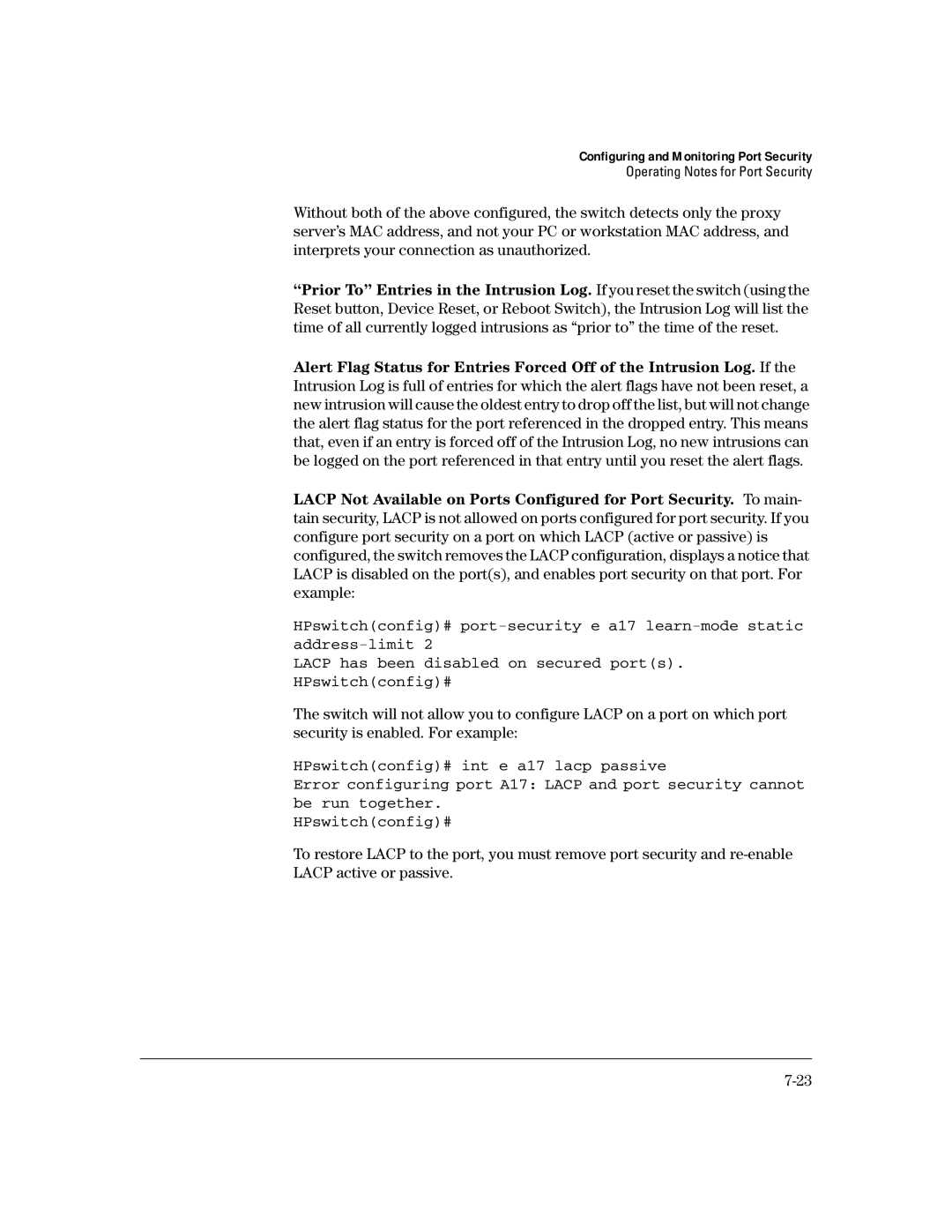Configuring and Monitoring Port Security
Operating Notes for Port Security
Without both of the above configured, the switch detects only the proxy server’s MAC address, and not your PC or workstation MAC address, and interprets your connection as unauthorized.
“Prior To” Entries in the Intrusion Log. If you reset the switch (using the Reset button, Device Reset, or Reboot Switch), the Intrusion Log will list the time of all currently logged intrusions as “prior to” the time of the reset.
Alert Flag Status for Entries Forced Off of the Intrusion Log. If the Intrusion Log is full of entries for which the alert flags have not been reset, a new intrusion will cause the oldest entry to drop off the list, but will not change the alert flag status for the port referenced in the dropped entry. This means that, even if an entry is forced off of the Intrusion Log, no new intrusions can be logged on the port referenced in that entry until you reset the alert flags.
LACP Not Available on Ports Configured for Port Security. To main- tain security, LACP is not allowed on ports configured for port security. If you configure port security on a port on which LACP (active or passive) is configured, the switch removes the LACP configuration, displays a notice that LACP is disabled on the port(s), and enables port security on that port. For example:
HPswitch(config)#
LACP has been disabled on secured port(s). HPswitch(config)#
The switch will not allow you to configure LACP on a port on which port security is enabled. For example:
HPswitch(config)# int e a17 lacp passive
Error configuring port A17: LACP and port security cannot be run together.
HPswitch(config)#
To restore LACP to the port, you must remove port security and
